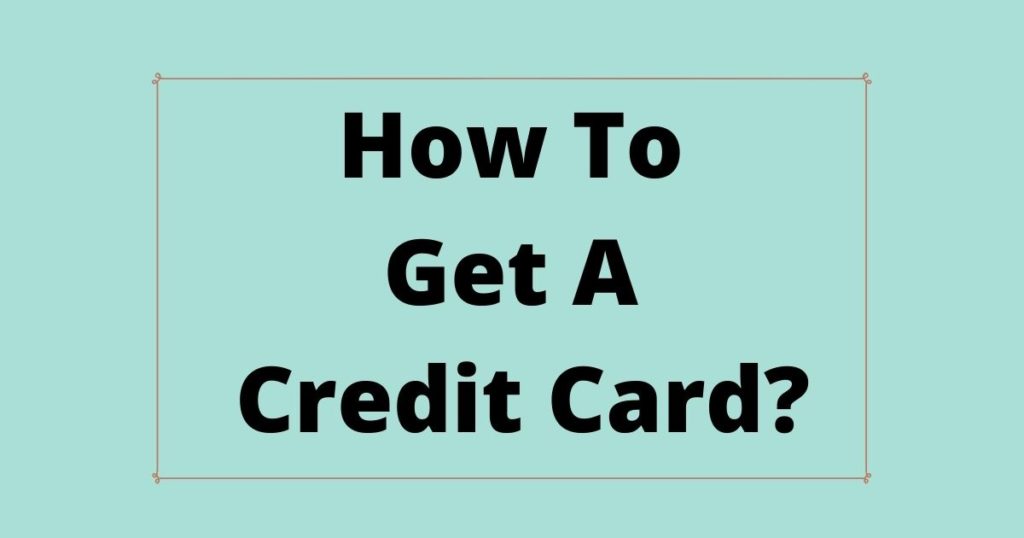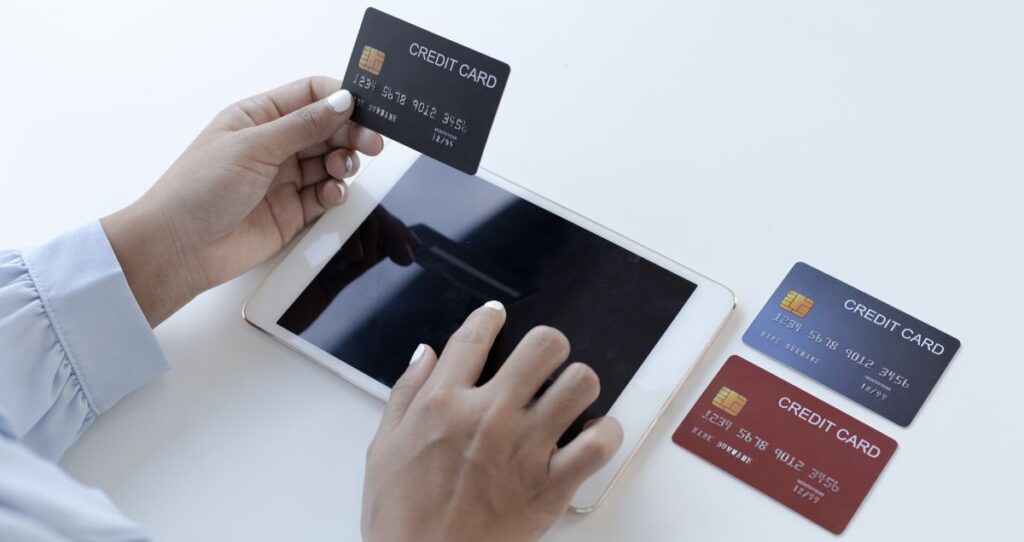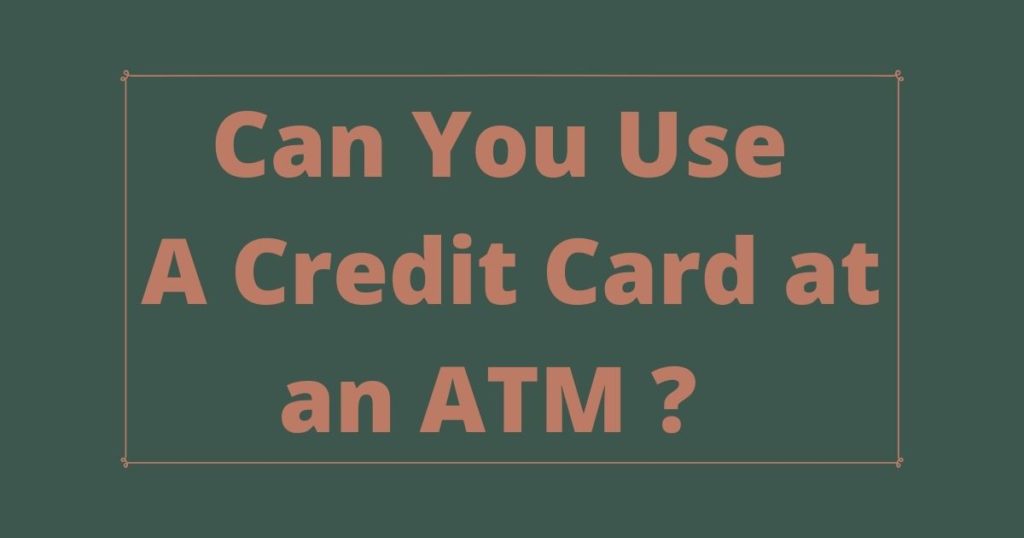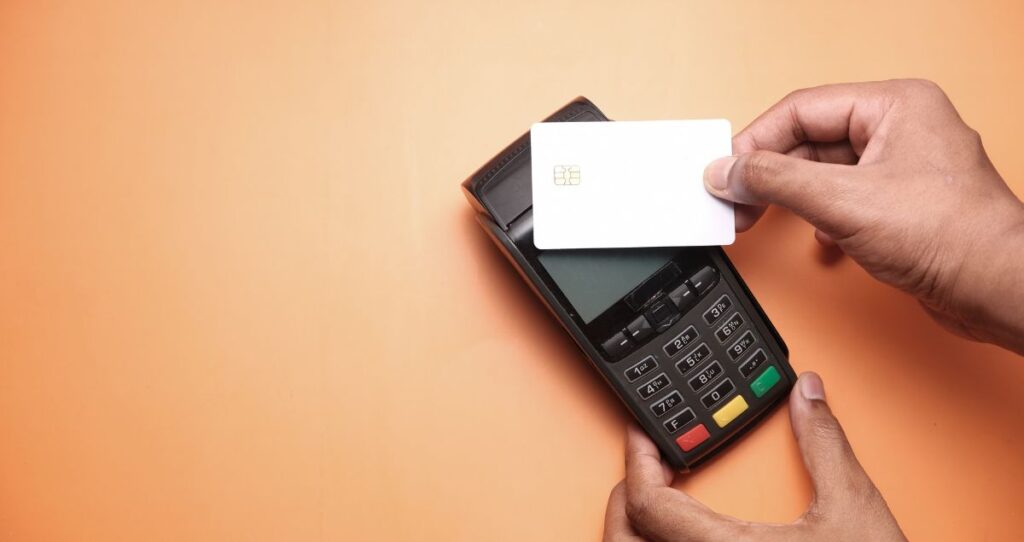An unsecured credit card comes with a higher credit limit and lower interest rate compared to a secured credit card. Additionally, unsecured credit cards require no security deposit to qualify and they come with better perks such as cashback, miles, points, and other forms of discounts.
Generally speaking, unsecured credit cards are designed for those with established credit history, stable income, and good or better credit scores. But, that does mean you cannot qualify for one if you have a fair or lower credit score. So, what is an unsecured credit card and how can you qualify for one? Whether you want to know what unsecured credit cards are, how to apply for one, or how to get a higher credit limit and maximize your rewards, this article will be your guide.
What is an unsecured credit card?
What does it mean when a credit card is unsecured? An unsecured credit card is a type of credit card that does not require any collateral. In other words, you don’t need to provide any assets or make a deposit to obtain an unsecured credit card. Your approval relies solely on your creditworthiness and ability to repay.
Unlike secured credit cards, which are typically backed by a cash deposit that serves as a security measure for the credit card issuer; unsecured credit cards operate without any such safety net. This means that the credit card company is taking a higher risk when extending credit to you, as they don’t have any tangible assets to fall back on if you fail to make your payments.
Given the higher risk involved, credit card issuers often have stricter requirements for unsecured credit cards. The card issuer carefully evaluates your credit history, income, and overall financial stability to assess if you’re a reliable borrower. Your credit score plays a crucial role in this evaluation process, as it reflects your previous history with credit, including any missed payments or loan defaults.
Unsecured credit cards are usually designed for people with a well-established credit history and good credit scores or better. If you have a thin credit file or have bad credit, you might need to use a secured credit card as a stepping stone to build credit and later upgrade to unsecured credit cards.
Related: 7 ways to improve a thin credit file fast
Difference between secured and unsecured credit card
Secured and unsecured credit cards are two options available to consumers who are looking for access to credit. While both types of cards offer the convenience of making purchases without carrying cash, they differ in how they are backed and the requirements for obtaining them.
Unsecured credit cards, as we discussed earlier, do not require collateral. This means that the credit card issuer does not hold any assets or funds as security against your credit limit. Instead, your creditworthiness and income are considered when determining your eligibility. Unsecured credit cards are typically easier to obtain if you have an established credit history, good credit score, and a stable source of income. They offer more flexibility and freedom, allowing you to make purchases up to your credit limit without requiring upfront collateral.
On the other hand, secured credit cards require you to provide a cash deposit as collateral. This deposit serves as a security for the credit card issuer in case you default on your payments. The amount of the deposit usually determines your credit limit, and it is typically held in an account that you cannot access while the card is active. Secured credit cards are often recommended for individuals who have a limited credit history or those with bad credit, as they provide an opportunity to rebuild credit.
Secured vs. unsecured credit card
| Unsecured credit card | Secured credit card |
| Does not require a deposit | Requires a deposit |
| Require a good credit score or a better | Does not require a good credit score |
| Requires an established credit history | Good for those without a credit history and who have bad credit |
| Does not require a good credit score | The deposit determines your credit limit |
| Comes with better features( lower rates, sign-up bonus, higher rewards such as cash backs, miles, and points) | Usually come with higher interests and limited rewards. |
| Offered by banks, credit unions, and other institutions | Offered by banks, credit unions, and other institutions |
How to find the best-unsecured credit card?
When searching for the best-unsecured credit card for your needs, it’s important to consider a few key factors.
- Interest rates. Take a close look at the interest rates associated with each card. Higher interest rates can quickly add up especially when you carry a large balance. So, finding a card with a competitive rate is crucial.
- Aim for unsecured credit cards with introductory rates. Be sure to check if there are any introductory interest rate offers and how long they last. Some unsecured credit cards come with 0% APR for the first 12 months or more.
- Avoid unsecured credit cards with annual fees. Some unsecured credit cards may charge an annual fee, which can impact the overall cost of using the card. For this reason, look for cards with no annual fee or consider whether the benefits of the card outweigh the fee.
- Assess the rewards programs associated with the card. Some unsecured credit cards offer cash back, travel points, or other rewards for your purchases. If you frequently use your credit card for everyday expenses, finding a card with a generous rewards program can make your spending work to your advantage.
- Get a card with a large sign-up bonus. Most unsecured credit cards come with sign-up bonuses. This bonus is like free money which helps you get the most out of your credit card.
- Check for additional perks that come with the card. This could include benefits like extended warranties on purchases, travel insurance, or access to exclusive events. Assessing which perks align with your lifestyle and needs can help you make the most of your credit card experience.
- Take into account any special circumstances or requirements you may have. For example, if you have a limited credit history, there are unsecured credit cards available that can help you rebuild your credit score.
How to qualify for an unsecured credit card?
Unlike secured credit cards that you can qualify for even if you have no credit history or have bad credit by simply putting down a deposit; qualifying for unsecured credit cards is a different story. This is because a deposit is not needed, which means that the credit card issuer relies solely on your income and creditworthiness. In order words the lender hopes that you will pay your monthly payments which simply means more risk. That is why qualifying for an unsecured credit card is harder than securing credit cards.
Related: How to apply for a credit card and get approved?
If you want to apply for an unsecured credit card, here are a few tips to increase your approval rate.
1. Improve your credit score
One of the main factors credit card issuers consider determining your eligibility is your credit score. A higher credit score generally indicates lower risk to the issuer, making it more likely that you will be approved for an unsecured credit card. On the other hand, having a poor credit score indicates that you are a risky borrower. For this reason, getting approved for an unsecured credit card will be more challenging.
For example, if you have a 580 credit score, you might find it difficult to qualify for most unsecured credit cards. This is because such a credit score is considered poor and it is a direct reflection of your current and past financial decisions. In order words, you are a risky borrower, and therefore, you cannot be trusted with more lines of credit unless you provide collateral.
If your score is not good or better, start by improving it before submitting an application for an unsecured credit card. Here is a simple strategy you can use to boost your credit score in 30 days.
Related: Get a 700 credit score in 7 simple steps
2. Secure an employment
Your credit score is not the only factor the card issuer will consider. Lenders also take into account your income and employment history. These additional factors provide a more comprehensive picture of your financial situation and help determine whether you can handle the credit card’s associated responsibilities.
Before submitting an application for an unsecured credit card, make sure that you have either a job or other forms of income such as passive income, interest payments, rental income, dividends, etc, to support your application. Without proof of income, you will not qualify for an unsecured credit card.
Related: Can I get a credit card without a job?
3. Improve your debt-to-income(DTI) ratio
To qualify for an unsecured credit card, you need to show your ability to repay. In order words, the income you make should cover all debts you currently carry plus the credit limit extended to you on the new card. This is where your debt-to-income ratio comes in.
The debt-to-income ratio shows how much debt you have compared to your income. To calculate your DTI ratio, simply divide your monthly debt payment by your monthly gross income. For example, if your monthly income is $3,000 and your monthly debt payment is $1,500, your DTI ratio will be 50%((1,500/3,000)*100)). With a 50% DTI ratio, most credit card companies will deny your application. What this means is that 50% of your gross income goes towards your debt payments and you have not paid tax, eaten yet, or paid other living expenses. Meaning, you pretty much have nothing left after paying off your expenses.
Most lenders prefer a debt-to-income ratio that is at most 28%. But, some lenders will approve your unsecured credit card application for a DTI ratio of 36% or higher.
4. Consider other specific eligibility requirements
In some cases, credit card issuers may have specific requirements or eligibility criteria. For instance, if you’re a student, there may be unsecured credit cards tailored specifically to students, offering unique benefits and lower credit requirements. These cards recognize the unique financial circumstances of students and provide an opportunity to build credit responsibly.
Some student credit cards also reward you with free money every time you reach a certain GPA in a calendar year. For example, according to Finance Buzz, Discover gives you a $20 cash reward for each year you get a 3.0 GPA or higher up to 5 years.
5. Research credit card options
Look for credit card issuers that are known for providing credit to individuals with lower credit scores. Read reviews and compare their terms and conditions to find the best fit for your needs.
6. Get pre-qualified
Before you submit an unsecured credit card application, get pre-qualified for many cards and compare different quotes. This process is essential as it allows you to compare your options and prevent you from submitting an application for credit cards you do not qualify for.
7. Submit your credit card application with supporting documents
After finding the card that you qualify for, complete the applications. Depending on your situation, you can either complete the application in person or online. Make sure that you have proof of income from all sources to maximize your approval rate and qualify for a higher credit limit.
8. Apply for a secured credit card if you get denied for an unsecured credit card
If you’re having trouble getting approved for an unsecured credit card, you may want to consider applying for a secured credit card. These cards require a security deposit as collateral, but they can help you build credit and eventually qualify for an unsecured credit card.
What is an unsecured credit limit?
The credit limit is the highest amount a credit issuer is willing to give you on a credit card. For unsecured credit cards, the unsecured credit limit represents the maximum amount of credit that the card issuer is willing to extend to you without requiring collateral. This limit is determined by a variety of factors, including your credit history, income, and overall financial profile.
The unsecured credit limit plays a significant role in determining how much purchasing power you have with your credit card. If you overspend and exceed this limit you will more likely pay penalty fees and potential damage to your credit score. Most credit cards do not allow you to spend more than your credit limit.
How do credit card issuers determine your unsecured credit limit?
To determine your unsecured credit limit, credit card issuers typically assess your creditworthiness by looking at your credit score, income, and debt-to-income ratio. Higher credit scores, stable income, and a low debt-to-income ratio generally result in a higher credit limit. Conversely, a poor credit score, unstable income, or high debt may lead to a lower credit limit or even a declined application.
When comparing credit cards, it’s important to consider not only the initial unsecured credit limit but also the potential for future credit limit increases. Some issuers may offer periodic credit limit reviews, allowing you to request an increase based on your responsible credit card usage and improved financial situation.
For example, if you recently got a higher-paying job, you can update your credit card profile and request a credit limit increase.
Read more: How do Credit Card issuers determine Your Credit card Limit?
Do you want a higher credit limit? Here is a guide: How to increase your credit limit: A complete guide?
Best unsecured credit cards for bad credit
Unsecured credit cards for bad credit can be a valuable tool for individuals seeking to rebuild their credit history. These credit cards are specifically designed for individuals with low credit scores and can provide a pathway to improving their financial standing. If you have a bad credit score, it is best to apply for a secured credit card to rebuild your credit and upgrade later.
One important factor to consider when selecting an unsecured credit card for bad credit is the card’s APR or annual percentage rate. It’s essential to look for a card with a reasonable APR to avoid excessive interest charges. Additionally, review any potential fees associated with the card, such as annual fees or processing fees. These fees can impact the overall cost of utilizing the card and should be weighed against the potential benefits.
Before applying for an unsecured credit card for bad credit, consider any additional features or benefits that may be offered. For example, some credit cards provide credit-building programs or educational resources for cardholders. These programs can be helpful in improving your credit score over time, potentially leading to increased credit limits or upgraded card options in the future.
According to WalletHub, the following is a list of the best-unsecured credit cards for bad credit.
- Credit One Bank® Platinum: for Rebuilding Credit
- OppFi® Card: No monthly fee
- Total Visa® Card: For a high approval rate
- Indigo® Mastercard® for less than perfect credit: Good for no upfront fees
- Milestone® Mastercard®: Good if you have bad credit
If you have bad credit, some of these credit cards can be your starting point. However, you are not limited only to these ones. You can also work with your bank to see what is currently available for existing clients.
What are the benefits of unsecured credit cards?
Is it a good idea to have an unsecured credit card? Yes, it is a good idea to apply for an unsecured credit card. Matter of fact, unsecured credit cards are considered better than secured credit cards in almost every aspect of their usage.
Here are the benefits of an unsecured credit card and why you need to get one.
- Unsecured credit cards do not require a deposit. One of the main advantages of an unsecured credit card is that it does not require a security deposit. This means you can access a line of credit without having to tie up your own funds.
- Comes with a higher credit limit that can be increased over time. Unsecured credit cards come with higher credit limits compared to secured credit cards. Meaning that the credit limit you get depends on your current credit score, income, credit history, and the specific limit on the card. The less risky you are, the more credit limit you will get. Additionally, your credit limit can be increased if you use your credit card responsibly and pay your bills on time.
- Lower interest rates. Unsecured credit cards come with lower rates compared to secured credit cards. This is because to qualify for unsecured credit cards, you need to be a good credit user. In order words, you can pay your balances on time and use your credit card responsibly. As a result, you get rewarded with a higher credit limit.
- Unsecured credit cards come with better rewards and lower fees. Generally, unsecured credit cards come with better features and perks compared to secured credit cards. For example, cash back, points, and miles are usually higher for unsecured credit cards. Annual fees are generally lower for unsecured credit cards compared to secured credit cards.
- You might also qualify for special features. Common features of unsecured credit cards include cash back on purchases, points towards travel or merchandise, or discounts at participating retailers. However, depending on the card, you may also have access to special perks such as travel insurance, extended warranties on purchases, or concierge services.
Do unsecured credit cards build credit faster?
When it comes to building credit with credit cards, the process works the same regardless of whether you are using unsecured credit cards or secured credit cards. In other words, the type of credit card you have do not matter for your credit history. This is because building credit is based on how you use the credit accounts you have instead of the types of credit cards you carry.
Your card issuer will submit your credit card activities such as payment history, credit utilization, etc, to major credit reporting agencies(Equifax, TransUnion, and Experian). Whether these activities come from a secured credit card or an unsecured credit card, they will be treated the same and will have the same impact on your credit score.
All you have to do to build credit fast is to use the credit accounts you have responsibly by paying your bills on time, keeping your credit utilization under 30% and 10% for maximum benefits, avoiding excess borrowing, etc. You should also keep a good credit mix which is made of revolving credit such as credit cards and installment loans such as a car loan. A good mixture shows that you can handle different types of loans which makes you a less risky borrower.
All these factors contribute to your credit history and help you build credit fast.
Can I get an unsecured credit card with a 580 credit score?
Many people wonder if their credit score is good enough to qualify for an unsecured credit card when it’s in the 580 range. While it’s true that a score of 580 is considered fair or poor, it doesn’t automatically disqualify you from obtaining an unsecured credit card.
Some credit card companies are willing to extend credit to individuals with lower credit scores. However, keep in mind that the terms and benefits may not be as favorable as those offered to individuals with higher credit scores. You might have a lower credit limit, higher interest rates, and fewer rewards or perks.
What is the minimum credit score for an unsecured credit card?
When it comes to unsecured credit cards, the minimum credit score required can vary depending on the card issuer and the specific card. Generally, unsecured credit cards are designed for individuals with good to excellent credit scores. While some credit cards may have a minimum requirement as low as 580, others may require a score closer to 700 or higher.
Generally speaking, most credit card issuers require a good credit score which is at least 670 or higher for their unsecured credit cards. Depending on the lender and the type of credit card you want, a higher credit score might be required.
If you have a lower credit score, it may be more challenging to qualify for an unsecured credit card. In such cases, secured credit cards can be a viable alternative. Secured credit cards require a security deposit, which serves as collateral and reduces the lender’s risk. By using a secured credit card responsibly, individuals can gradually build or rebuild their credit history, eventually qualifying for an unsecured credit card.
More credit card tips
What Credit cards does Costco Accept?
Can I get a credit card without a job?






